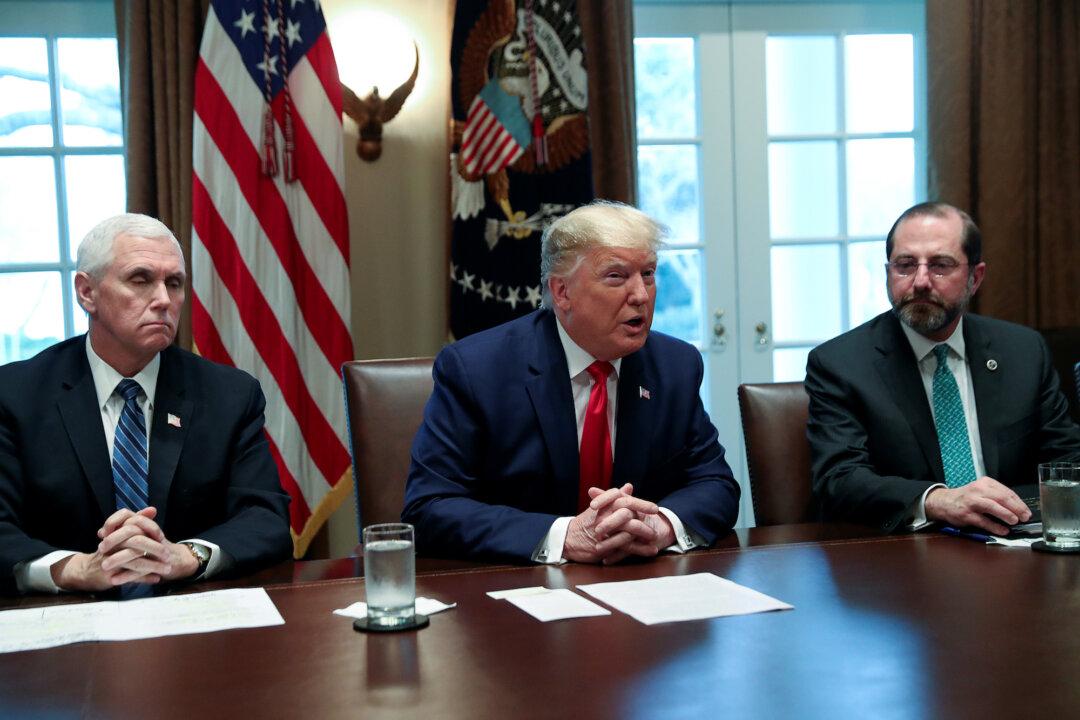President Donald Trump said the COVID-19 outbreak highlights the importance of bringing back to the United States previously offshored supply chains for drugs and gear “that we need so badly” to fight the spread of the virus.
The Trump administration’s Coronavirus Task Force met with representatives of pharmaceutical and biotechnology companies at the White House on March 3. Trump said steps were already being taken to mitigate the public health risks of reliance on other countries for key drugs and equipment.





